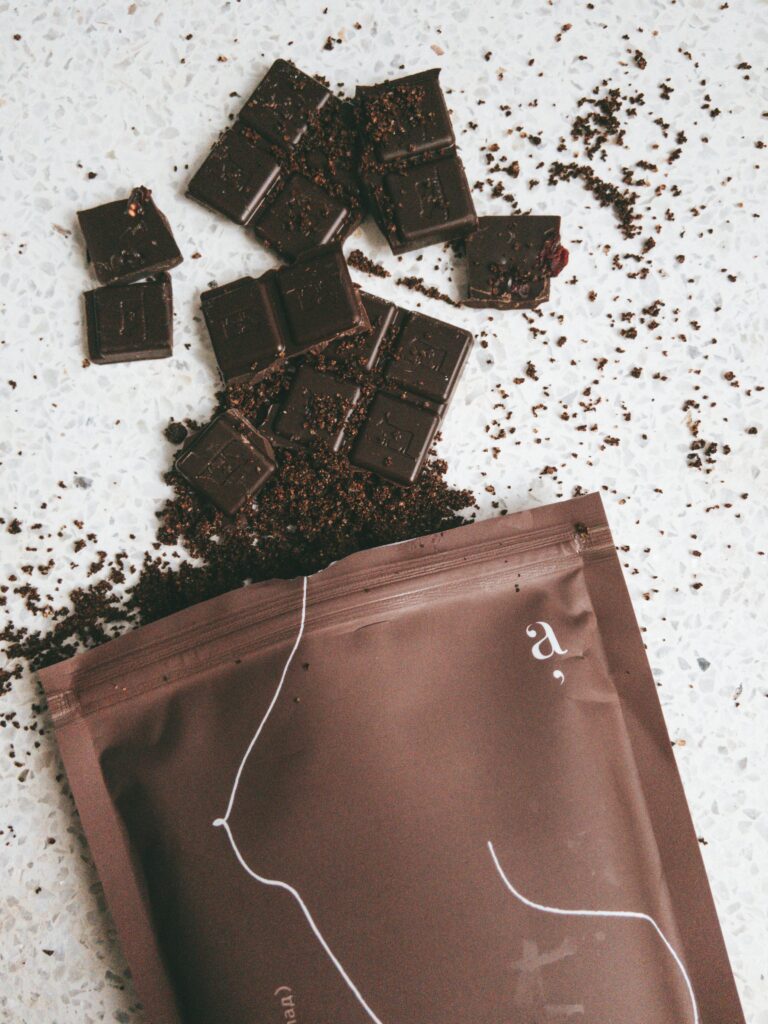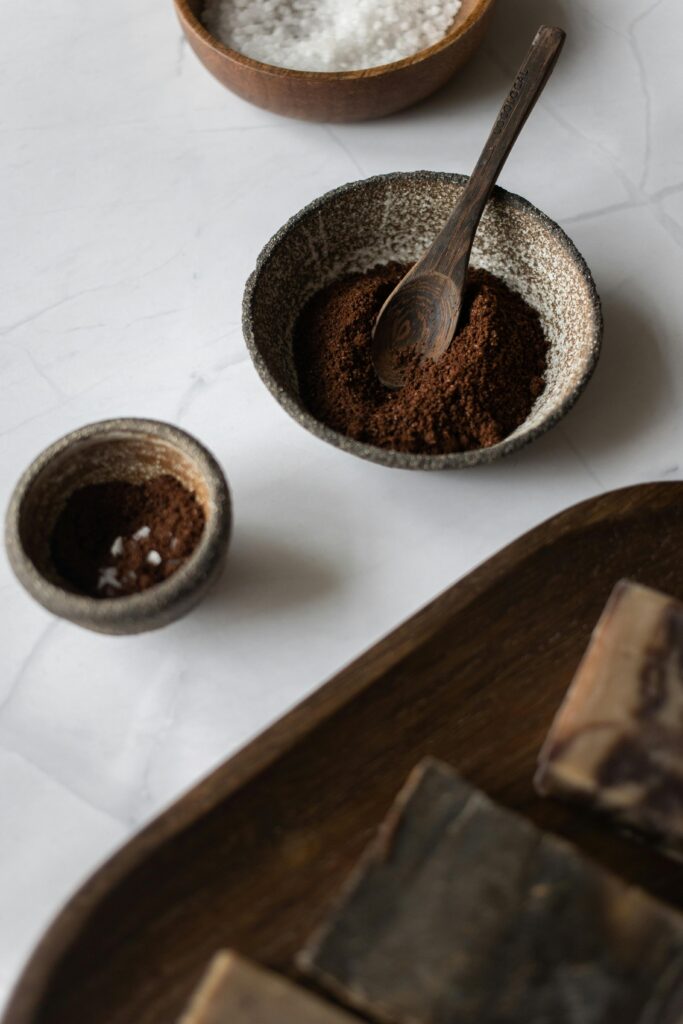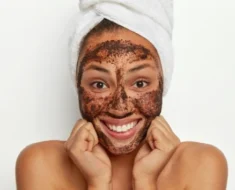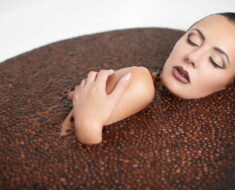Are coffee scrubs bad for your skin? This popular skincare trend has sparked debate among beauty enthusiasts and dermatologists alike.
While coffee grounds are praised for their exfoliating properties and supposed ability to reduce cellulite and improve circulation, their use on delicate facial skin raises concerns.
Abrasive textures can cause micro-tears, leading to irritation and potential damage.
Moreover, coffee’s acidity may disrupt the skin’s natural pH balance, exacerbating conditions like acne or dryness.
Understanding the risks and benefits of coffee scrubs is essential for making informed decisions about skincare routines
Here is iced coffee bad for your skin?
Are coffee scrubs bad for your skin?
Coffee scrubs can have both benefits and drawbacks for your skin, depending on various factors.
On the positive side, the coarse texture of coffee grounds can exfoliate dead skin cells, leaving your skin feeling smoother and softer.
The caffeine in coffee is also believed to temporarily tighten and firm the skin, reducing the appearance of cellulite. Additionally, coffee contains antioxidants that can potentially help to combat free radical damage.

However, coffee scrubs can be too harsh for sensitive skin, causing irritation, redness, or even micro-tears in the skin if used too vigorously.
The acidity of coffee can also disrupt the skin’s natural pH balance, leading to dryness or excessive oiliness in some individuals.
To minimize potential negative effects, it’s important to use coffee scrubs gently and not too frequently, especially if you have sensitive or easily irritated skin.
Always moisturize after exfoliation to maintain skin hydration. If irritation occurs, discontinue use and consult a dermatologist for personalized skincare advice.
Here, how to make coffee scrub for skin glowing.
Are coffee scrubs bad for your skin overnight?
Using coffee scrubs overnight is generally not recommended due to several potential issues. Firstly, coffee grounds can be abrasive, especially when left on the skin for an extended period.
This can lead to irritation, redness, and even micro-tears in the skin, which may compromise the skin’s barrier function and lead to sensitivity.
Additionally, coffee contains natural acids and can be drying to the skin if left on for too long.
Prolonged exposure may disrupt the skin’s pH balance, potentially causing dryness or excessive oiliness depending on your skin type.
Moreover, overnight application of coffee scrubs increases the risk of staining your sheets and clothes due to the dark color of coffee grounds.
For safe use, it’s best to apply a coffee scrub for the recommended time (usually a few minutes) and then thoroughly rinse it off.
Follow up with a moisturizer to replenish hydration. If you experience any irritation or discomfort, discontinue use and consult a dermatologist for suitable alternatives.
Are coffee scrubs bad for your skin dermatologist
Dermatologists generally advise caution when using coffee scrubs on the skin.
While coffee grounds can provide mechanical exfoliation, they are often too harsh and abrasive for delicate facial skin.
The uneven texture of coffee grounds can cause micro-tears in the skin, leading to irritation, redness, and potentially worsening conditions like acne or rosacea.
Moreover, the natural acids in coffee can disrupt the skin’s pH balance, leading to dryness or increased oil production in some individuals. Prolonged or vigorous use of coffee scrubs can strip the skin of its natural oils, further exacerbating these issues.
Instead of coffee scrubs, dermatologists recommend gentler exfoliation methods such as chemical exfoliants (like alpha hydroxy acids or beta hydroxy acids) which are formulated to dissolve dead skin cells without causing physical damage.
Ultimately, if you choose to use a coffee scrub, it’s essential to do so sparingly and with caution, especially if you have sensitive skin or any existing skin conditions.
Always follow up with a moisturizer to maintain skin hydration and consult a dermatologist if you experience any adverse reactions.
Here, how to make coffee scrub for glowing skin?
Are coffee scrubs bad for your skin and hair
Coffee scrubs can have different effects on skin and hair, depending on individual factors.
For skin, the coarse texture of coffee grounds can provide physical exfoliation, removing dead skin cells and leaving the skin smoother temporarily.
However, coffee scrubs can be abrasive, potentially causing irritation and micro-tears in the skin, especially if used too vigorously or frequently.
The acidic nature of coffee can also disrupt the skin’s pH balance, leading to dryness or increased oiliness.
When it comes to hair, coffee scrubs are sometimes used to stimulate the scalp and purportedly promote hair growth due to caffeine’s potential to increase blood circulation.
However, coffee grounds can be difficult to rinse out of hair completely and may cause buildup, especially for those with fine or easily weighed-down hair.
Overall, while coffee scrubs can offer benefits like temporary skin smoothness and scalp stimulation, they should be used cautiously to avoid potential irritation and adverse effects, particularly for sensitive skin and hair types.
Does coffee scrub clog pores?
Coffee scrubs can potentially clog pores, especially for individuals with sensitive or acne-prone skin.
The coarse texture of coffee grounds used in scrubs can be abrasive and may not be effectively rinsed away, leading to the accumulation of residue in pores. This buildup can block pores and contribute to the development of blackheads or whiteheads.

Moreover, the natural oils present in coffee can mix with other substances on the skin, potentially creating a film that blocks pores, particularly if not thoroughly cleansed off after use.
Additionally, if the scrub contains added oils or ingredients that are comedogenic (tend to clog pores), this further increases the risk of pore blockage.
To minimize the risk of pore clogging, it’s crucial to use coffee scrubs gently and avoid applying them too frequently, especially on areas prone to acne.
After exfoliation, always cleanse the skin thoroughly and follow up with a non-comedogenic moisturizer if needed.
If you notice increased breakouts or irritation, discontinue use and consult a dermatologist for suitable alternatives.
What happens if I use coffee scrub daily?
Using a coffee scrub daily can lead to several potential issues for your skin. Firstly, the abrasive nature of coffee grounds can cause micro-tears in the skin, especially with frequent use.
These tiny tears can compromise the skin’s barrier function, leading to increased sensitivity, redness, and irritation.
Additionally, daily use of coffee scrubs can disrupt the skin’s natural pH balance and strip away its natural oils. This can result in dryness, flakiness, or conversely, an overproduction of oil as the skin tries to compensate for the loss of moisture.
Moreover, the physical exfoliation from daily scrubbing can be too harsh for many skin types, potentially exacerbating conditions like acne or rosacea.
To maintain healthy skin, it’s generally recommended to use exfoliating scrubs like coffee scrubs no more than 2-3 times per week, depending on your skin’s sensitivity and condition.
Always follow up with a moisturizer to replenish hydration and protect the skin’s barrier.
Here, skin doctor whitening srcub review.
How often should I use a coffee scrub?
It’s generally recommended to use a coffee scrub no more than 2-3 times per week. This frequency allows for effective exfoliation without over-stimulating or potentially damaging the skin.
Coffee scrubs can be abrasive due to their coarse texture, which can cause micro-tears in the skin if used too frequently or vigorously.
The exact frequency may vary depending on your skin type and sensitivity. Those with sensitive or acne-prone skin may find that using a coffee scrub once a week is sufficient to avoid irritation and maintain skin health.
Conversely, individuals with thicker or more resilient skin may be able to tolerate using a coffee scrub up to three times per week.
After using a coffee scrub, always follow up with a gentle cleanser to ensure all residue is removed, and apply a moisturizer to replenish hydration.
If you experience any signs of irritation or discomfort, such as redness or excessive dryness, reduce the frequency of use or discontinue use altogether.
What are the disadvantages of coffee on your face?
Using coffee on your face can have several disadvantages, especially if not used properly or if you have sensitive skin.
Firstly, coffee grounds can be abrasive and uneven in texture, potentially causing micro-tears in the skin’s surface. These tiny tears can lead to irritation, redness, and increased sensitivity, particularly in delicate facial skin.
Additionally, coffee contains natural acids that can disrupt the skin’s pH balance. This can result in dryness or an overproduction of oil as the skin tries to compensate, leading to imbalanced skin conditions.
Moreover, coffee can stain the skin temporarily due to its dark color, which can be challenging to remove, especially around areas like the eyes and mouth.
Lastly, some individuals may be allergic to coffee or sensitive to its components, which can trigger allergic reactions or exacerbate existing skin conditions such as eczema or rosacea.
To mitigate these risks, it’s essential to use coffee products sparingly and cautiously, especially on facial skin.
Always perform a patch test before applying coffee products to your face and discontinue use if you experience any adverse reactions.
Are Coffee Scrubs Safe for All Skin Types?
Coffee scrubs may not be safe for all skin types due to their potential for causing irritation and sensitivity, particularly in individuals with sensitive or easily irritated skin.
The coarse texture of coffee grounds can be too abrasive for delicate skin, leading to micro-tears and increased sensitivity.
For those with acne-prone skin, the physical exfoliation from coffee scrubs can potentially worsen inflammation and breakouts.
Furthermore, the natural acids in coffee can disrupt the skin’s pH balance, which may lead to dryness or increased oiliness depending on the individual’s skin type.
While some people with thicker or less sensitive skin may tolerate coffee scrubs well, those with sensitive or problematic skin conditions should approach them cautiously or avoid them altogether.
It’s advisable to perform a patch test before applying a coffee scrub to your face or body and to start with less frequent use to assess how your skin reacts.
Consulting with a dermatologist can provide personalized guidance on suitable exfoliation methods for your skin type.
How to Add a Coffee Scrub to Your Routine
To incorporate a coffee scrub into your skincare routine effectively, follow these steps:
- Choose the Right Product: Select a coffee scrub formulated for your skin type, preferably one with fine coffee particles to minimize abrasiveness.
- Patch Test: Before applying the scrub all over, perform a patch test on a small area of skin to check for any adverse reactions or sensitivity.
- Frequency: Use the coffee scrub no more than 2-3 times per week, depending on your skin’s tolerance and sensitivity.
- Application: Apply the scrub to damp skin in gentle, circular motions. Focus on areas like elbows, knees, and rough patches on your body. For the face, apply with a lighter touch and avoid delicate areas like around the eyes.
- Rinse Off Thoroughly: After scrubbing, rinse off completely with lukewarm water. Ensure all residue is removed to prevent any potential irritation or clogged pores.
- Moisturize: Follow up with a moisturizer to hydrate and protect your skin after exfoliation.
- Monitor Skin Reaction: Observe how your skin responds after each use. Discontinue if you experience any irritation, redness, or discomfort.
By following these steps, you can safely incorporate a coffee scrub into your skincare routine to enjoy its exfoliating benefits without compromising your skin’s health.
Here, coffee bean for skin?
Why you think coffee scrub bad for your skin?
Coffee scrubs can be problematic for skin due to several reasons. Firstly, the coarse texture of coffee grounds can be too abrasive, causing micro-tears in the skin’s surface.
These tears can lead to irritation, redness, and increased sensitivity, especially for those with sensitive or thin skin.
Additionally, coffee contains natural acids that can disrupt the skin’s pH balance.
This imbalance can result in dryness, flakiness, or an overproduction of oil as the skin tries to compensate, leading to imbalanced skin conditions.
Moreover, the dark color of coffee grounds can stain the skin temporarily, which can be challenging to remove, particularly around areas like the eyes and mouth.
Furthermore, some individuals may be allergic to coffee or sensitive to its components, which can trigger allergic reactions or exacerbate existing skin conditions such as eczema or rosacea.
For these reasons, caution should be exercised when using coffee scrubs, and it may not be suitable for everyone, particularly those with sensitive skin or certain skin conditions.
5 Advantages of coffee scrub
1. Exfoliation and Removal of Dead Skin Cells
Coffee scrubs are renowned for their exfoliating properties, which help in sloughing off dead skin cells from the surface of the skin.
The coarse texture of coffee grounds acts as a physical exfoliant, gently buffing away dull, flaky skin and revealing smoother, brighter skin underneath.

This process not only enhances the skin’s appearance but also promotes cell turnover, which can contribute to a more youthful complexion over time.
Exfoliation with a coffee scrub can also improve the effectiveness of other skincare products by allowing them to penetrate deeper into the skin.
This can maximize the benefits of moisturizers, serums, and treatments, making your overall skincare routine more effective.
2. Stimulation of Circulation
The caffeine content in coffee scrubs can stimulate blood flow when massaged onto the skin.
This increased circulation can have several benefits for the skin, including a temporary plumping effect that reduces the appearance of cellulite and fine lines.
Improved circulation also means better delivery of oxygen and nutrients to the skin cells, promoting overall skin health and vitality.
Additionally, enhanced blood flow can help in reducing puffiness and swelling, particularly around the eyes and areas prone to water retention.
This makes coffee scrubs a popular choice for morning routines to help wake up and invigorate the skin.
3. Temporary Skin Tightening and Smoothing
Caffeine, a key component of coffee, has properties that can temporarily tighten and firm the skin.
When applied topically via a coffee scrub, caffeine can help to reduce the appearance of cellulite by dehydrating the fat cells and making them appear less prominent.
This smoothing effect is often appreciated in areas like thighs, buttocks, and abdomen.
Moreover, the tightening effect of caffeine can also temporarily minimize the appearance of fine lines and wrinkles, giving the skin a smoother texture and a more youthful appearance.
While these effects are temporary, regular use of coffee scrubs can help maintain the skin’s firmness and elasticity over time.
4. Antioxidant Protection
Coffee is rich in antioxidants, such as polyphenols and flavonoids, which can help to protect the skin from damage caused by free radicals.
Free radicals are unstable molecules that can accelerate the aging process and contribute to various skin concerns, including wrinkles, age spots, and dullness.
By using a coffee scrub infused with antioxidants, you can potentially neutralize free radicals and minimize their harmful effects on the skin.
This antioxidant protection not only supports overall skin health but can also contribute to a more radiant and youthful complexion.
5. Natural Aromatherapy and Skin Smoothing
Beyond its skincare benefits, using a coffee scrub can provide a sensory experience due to its natural aroma.
The rich, invigorating scent of coffee can awaken the senses and provide a refreshing start to your day.
This aromatic experience can also have mood-boosting effects, helping to reduce stress and enhance relaxation during your skincare routine.
Furthermore, the natural oils present in coffee scrubs, such as coconut oil or almond oil, can provide additional moisturization and nourishment to the skin.
Here, coffee bean extract for skin.
These oils help to soften and smooth the skin, leaving it feeling hydrated and supple after exfoliation.
In summary, coffee scrubs offer multiple advantages for the skin, including exfoliation, stimulation of circulation, temporary skin tightening, antioxidant protection, and a sensory aromatherapy experience.
Incorporating a coffee scrub into your skincare routine can promote smoother, brighter, and more revitalized skin with consistent use.
The Coffee Grounds In a DIY Coconut Oil and Coffee Body Scrub Aren’t Safe
Using coffee grounds in a DIY coconut oil and coffee body scrub can pose risks to your skin.
Coffee grounds, especially when used as an exfoliant, can be too coarse and abrasive for delicate skin, causing micro-tears and irritation.
These tiny tears can compromise the skin’s barrier function and lead to increased sensitivity, redness, and potential inflammation.
Moreover, the irregular texture of coffee grounds can make them difficult to rinse off completely, which may result in residue buildup on the skin.
This residue can clog pores and contribute to breakouts, especially for individuals with acne-prone skin.
Additionally, coffee grounds have a natural dark color that can temporarily stain the skin. This staining may be challenging to remove, particularly in areas like the hands and feet.
To avoid these risks, it’s advisable to choose gentler exfoliants for DIY scrubs, such as finely ground sugar or oats.
If you prefer using coffee in skincare, opt for commercially formulated products specifically designed for safe use on the skin.
Your DIY Coffee Scrub Won’t Be As Powerful As You Think
DIY coffee scrubs, while popular, may not deliver the powerful skincare benefits often touted.
The effectiveness of a coffee scrub largely depends on various factors, including the fineness of the coffee grounds and the concentration of active ingredients like caffeine.
In homemade versions, achieving a consistent and fine texture in coffee grounds can be challenging, potentially resulting in uneven exfoliation and limited absorption of beneficial compounds.
Commercially produced coffee scrubs undergo rigorous processing to ensure uniform particle size and optimal concentration of active ingredients.
They are formulated with stabilizers and preservatives to maintain effectiveness and safety over time.
DIY versions may lack these stabilizers, leading to shorter shelf life and potential degradation of active components.
Furthermore, DIY scrubs may not undergo testing for skin compatibility and efficacy, unlike professionally formulated products.
To ensure you receive the intended benefits of coffee for skincare, consider using reputable commercial products formulated specifically for safe and effective use on the skin.
Coffee scrub disadvantages
Coffee scrubs can have several disadvantages for your skin. Firstly, the coarse texture of coffee grounds can be too harsh and abrasive, causing micro-tears in the skin’s surface.
These tiny tears can lead to irritation, redness, and increased sensitivity, especially for those with sensitive or delicate skin.
Additionally, coffee contains natural acids that can disrupt the skin’s pH balance.
This imbalance can result in dryness, flakiness, or an overproduction of oil as the skin tries to compensate, leading to imbalanced skin conditions.
Moreover, the dark color of coffee grounds can temporarily stain the skin, which can be challenging to remove, particularly in areas like the hands and feet.
Furthermore, some individuals may be allergic to coffee or sensitive to its components, which can trigger allergic reactions or exacerbate existing skin conditions such as eczema or rosacea.
To minimize these risks, it’s important to use coffee scrubs cautiously, especially on sensitive skin, and to choose products with finely ground coffee particles to reduce abrasiveness.
Side effects of coffee scrub on face
Using a coffee scrub on the face can lead to several potential side effects, particularly if not used properly or if you have sensitive skin.
The coarse texture of coffee grounds can be abrasive, causing micro-tears in the skin’s surface. These tears can lead to irritation, redness, and increased sensitivity, especially for those with delicate facial skin.
Additionally, the natural acids in coffee can disrupt the skin’s pH balance, potentially leading to dryness or increased oiliness depending on your skin type. This imbalance can exacerbate existing skin conditions such as acne or rosacea.
Moreover, the caffeine content in coffee scrubs may cause temporary skin tightening, which can be uncomfortable for some individuals, especially those with very sensitive skin.
To minimize these side effects, it’s essential to use a coffee scrub cautiously on the face, avoiding sensitive areas like around the eyes, and to perform a patch test before applying it to larger areas of the face.
If you experience any adverse reactions, such as severe irritation or inflammation, discontinue use immediately and consult a dermatologist for advice.
Coffee scrub recipe
To create a basic DIY coffee scrub, you’ll need the following ingredients:
- Coffee Grounds: Use finely ground coffee for smoother texture and gentler exfoliation. You can use fresh coffee grounds or recycle used coffee grounds from your morning brew.
- Oil: Choose a nourishing oil such as coconut oil, olive oil, sweet almond oil, or jojoba oil. These oils help bind the scrub together and provide moisturization to the skin.
- Optional Additions: You can customize your scrub with additional ingredients like brown sugar for extra exfoliation, honey for its antibacterial properties and added moisture, or essential oils for fragrance and therapeutic benefits.
Recipe:
- Mix 1/2 cup of coffee grounds with 1/4 cup of melted coconut oil (adjust the ratio to achieve your desired consistency).
- Stir in 2 tablespoons of brown sugar if desired for added exfoliation.
- Add a few drops of essential oils like lavender or peppermint for fragrance.
- Mix well until all ingredients are thoroughly combined.
- Store the scrub in an airtight container and use it within a week for optimal freshness.
Before using, perform a patch test to ensure compatibility with your skin, especially if you have sensitive skin or allergies.
How to make coffee scrub for face
To make a gentle coffee scrub for your face, follow these steps:
- Ingredients: Gather finely ground coffee (1 tablespoon), coconut oil (1 tablespoon, melted), and optionally, a small amount of honey (1 teaspoon) for its moisturizing and antibacterial properties.
- Mixing: In a small bowl, combine the finely ground coffee and melted coconut oil. Mix well until you achieve a paste-like consistency. If desired, add honey to the mixture and blend thoroughly.
- Application: Start with a clean, damp face. Gently apply the coffee scrub using your fingertips in circular motions. Be cautious around the delicate skin under the eyes.
- Massage: Massage the scrub onto your face for 1-2 minutes to exfoliate dead skin cells and stimulate circulation.
- Rinse: Rinse off the scrub with lukewarm water, ensuring all residue is removed. Pat your face dry with a clean towel.
- Moisturize: Follow up with a lightweight facial moisturizer to lock in hydration.
- Frequency: Use this coffee scrub no more than 2-3 times per week to avoid over-exfoliating and potentially irritating your skin.
This DIY coffee scrub can help brighten your complexion and improve skin texture, but remember to discontinue use if you experience any irritation or sensitivity.
Related Faq’s
Why should one not use a coffee scrub on the face?
One should avoid using a coffee scrub on the face because the coarse texture of coffee grounds can be too abrasive for delicate facial skin.
This abrasiveness can cause micro-tears in the skin’s surface, leading to irritation, redness, and increased sensitivity.
Additionally, the natural acids in coffee can disrupt the skin’s pH balance, potentially causing dryness or exacerbating existing skin conditions like acne or rosacea.
Using a coffee scrub too frequently or vigorously on the face can compromise the skin’s barrier function and lead to long-term damage, making it unsuitable for regular facial skincare routines.
Is applying coffee powder as a scrub regularly good or bad?
Applying coffee powder as a scrub regularly can have both benefits and drawbacks.
The coarse texture of coffee grounds can effectively exfoliate dead skin cells and temporarily tighten the skin due to caffeine content.
However, using it too frequently or vigorously may lead to skin irritation, redness, and micro-tears, particularly for sensitive skin types.
Moreover, the natural acids in coffee can disrupt the skin’s pH balance, potentially causing dryness or exacerbating skin conditions.
To avoid these issues, it’s advisable to use coffee scrubs sparingly, no more than 2-3 times per week, and to monitor how your skin responds to ensure it remains healthy and balanced.
Today I used homemade coffee scrub and within only 4 minutes I got rashes and bumps and my skin started itching badly. What’s the reason?
The reaction you experienced after using the homemade coffee scrub suggests that you may have an allergy or sensitivity to one or more ingredients in the scrub, such as coffee grounds or any added oils or ingredients.
Coffee grounds can be abrasive and may cause irritation, especially if your skin is sensitive or if the coffee was too coarse.
Additionally, some individuals may be allergic to components in coffee or other ingredients used in DIY scrubs.
It’s important to discontinue use immediately, rinse thoroughly with water, and apply a soothing, hypoallergenic moisturizer.
If the reaction persists or worsens, consult a dermatologist for proper evaluation and treatment.
Can coffee scrub be used on the face as well?
Coffee scrubs can be used on the face, but caution is advised due to the potential for irritation.
The coarse texture of coffee grounds can be too abrasive for delicate facial skin, leading to micro-tears, redness, and increased sensitivity, especially if applied vigorously.
Additionally, the natural acids in coffee may disrupt the skin’s pH balance, potentially causing dryness or exacerbating skin conditions.
If using a coffee scrub on the face, opt for finely ground coffee and apply it gently in circular motions for no more than 1-2 minutes.
Perform a patch test first and limit use to 1-2 times per week to minimize potential adverse effects.
Does coffee scrub make your complexion dark?
Using a coffee scrub does not typically darken your complexion permanently.
However, the natural dark color of coffee grounds can temporarily stain the skin, especially if not rinsed off thoroughly.
This staining effect is usually mild and fades over time as you wash your face or body.
To minimize the risk of temporary discoloration, ensure thorough rinsing after using a coffee scrub.
Additionally, using finely ground coffee and applying the scrub gently can reduce the likelihood of any noticeable staining on the skin.
Conclusion:
In conclusion, while coffee scrubs can offer benefits such as exfoliation and temporary skin tightening, they can also be harsh and abrasive for some skin types.
The coarse texture of coffee grounds can potentially cause micro-tears, irritation, and disrupt the skin’s natural pH balance.
Individuals with sensitive skin or certain skin conditions like acne should approach coffee scrubs cautiously or avoid them altogether to prevent exacerbating these issues.
It’s important to consider individual skin sensitivity and consult with a dermatologist if experiencing adverse reactions.
Moderation and careful application are key to safely incorporating coffee scrubs into a skincare routine.









